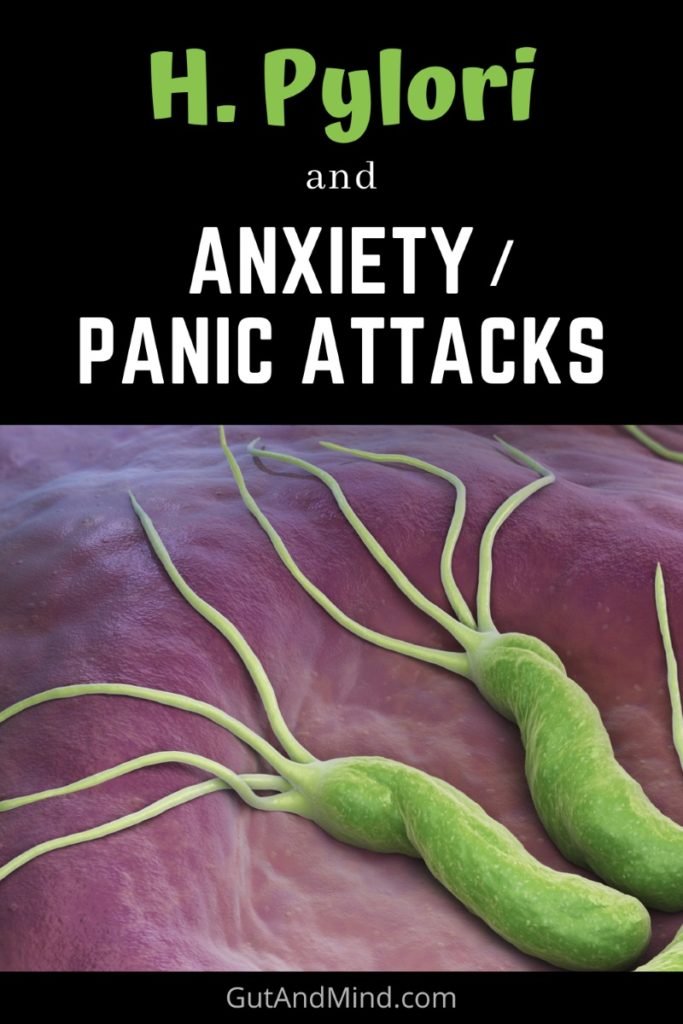Did you know that a Helicobacter pylori (H. pylori) infection could be the cause of your anxiety or panic attacks?
H. pylori is a bacterium that usually infects the stomach decreasing stomach acid levels and sometimes causing peptic ulcers. It’s estimated that more than half of the world’s population has the infection, so it’s quite common.
Symptoms of an H. pylori infection can include:
- dull pain or burning in the stomach area
- indigestion
- feeling bloated
- frequent burping
- loss of appetite
- nausea
- dizziness
- vomiting
- heartburn
- fever
- unexplained weight loss
Keep in mind that many people do not experience any of the above symptoms.
H. pylori Infection Causes Vitamin and Mineral Deficiencies
When you have an H. pylori infection, your stomach acid can be reduced as the bacteria produces an enzyme called urease that neutralizes the acid. The low stomach acid will then affect digestion, eventually resulting in some vitamin and mineral deficiencies.
The most common vitamin and mineral deficiencies caused by an H. pylori infection are vitamin B12 and iron (ferritin). Once those two reach less-than-optimal levels, you might experience the following symptoms:
- shortness of breath
- heart palpitations
- anxiety
- panic attacks
- numbness
- fatigue
- balance issues
- dizziness
- hair loss
- lightheadedness
If your blood test results show your vitamin B12 and ferritin are on the lower side, and you seem to have some digestive issues (i.e. indigestion, bloating, acid reflux, heartburn), it might be a good idea to get tested for the infection.
Women with the infection can also experience low progesterone and estrogen levels along with low B12, low ferritin, and sometimes high TSH (or low free T3 and/or free T4) since the lack of good digestion causes deficiencies in vitamins and minerals required for hormone production.
When my blood tests showed that my vitamin B12, hormones, and ferritin levels were outside the optimal range, surprisingly, no doctor or naturopath recommended I get tested for H. pylori. An H. pylori blood test is common and inexpensive, so there was no good reason for me to not get tested.
Unfortunately, it took more than a year of terrible anxiety, a few panic attacks, and a couple of extreme episodes of indigestion (one of which landed me in the hospital) before I was finally tested for the infection by an integrative medicine practitioner.
H. pylori Treatments
If you’ve been diagnosed with H. pylori and have decided to get rid of it, you have two choices: the allopathic (antibiotic) treatment or the natural treatment. If you decide to go the natural route, do a lot of research. What works for one person, might not necessarily work for another. Some people do well with a couple of supplements, others need several supplements along with a major lifestyle change.
The most common supplements used to treat an H. pylori infection include:
- Mastic gum
- Sulforaphane or broccoli sprouts
- Manuka honey
- Monolaurin/Lauricidin
- NAC (N-Acetyl Cysteine)
- Pylopass
- Cabbage juice
- Black seed (Nigella sativa) oil or ground black seeds
- Probiotics
- Zinc carnosine
Make sure to check with your health provider first before trying these supplements, especially if you’re on medication.









2 Responses
Slower cognitive decline in pet owners??
Hi Elize! If you’re looking for the article about cognitive decline in pet owners, you can find it here: https://gutandmind.com/slower-cognitive-decline-in-pet-owners/. Also, there is a source link in the post if you’d like to do some further reading on the subject.